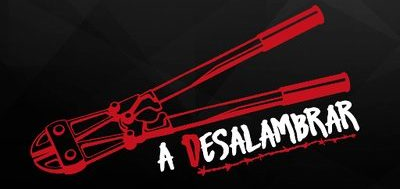 |
Basque Info
In this issue:
- Colossal demonstration calls for repatriation of prisoners and exiles
- Solidarity with young activist
Last Saturday Bilbao witnessed one of the largest demonstrations ever held in the Basque Country. According to usually reliable estimates over 110,000 people attended the march which had been organised and supported by a myriad of political parties, trade unions and social movements to demand the repatriation of all Basque political prisoners and exiles.
It also asked for the immediate release of seriously ill prisoners (eight) and those who have already served two-thirds and three-fourths of their sentences (175 prisoners) as well as those who have already served 100% (58 prisoners). According to Etxerat, the association of relatives of Basque political prisoners and exiles, there are currently 665 prisoners scattered in 71 jails in seven different countries (but the vast majority in the Spanish and French states). Only eight are held in prisons in the Basque Country.
The crowd was so big that it proved very hard for the head of it to move forward. A banner carried by well known musicians, artists, ex-prisoners, sports people and former IRA hunger striker and Sinn Féin MLA Pat Sheehan read in Basque and English: “Repatriate All Basque Prisoners with all their rights.” Leading the march hundreds of prisoners’ relatives walked holding flags with the repatriation campaign logo and slogan (the Spanish National Court had banned them from carrying photographs of prisoners or from calling them political prisoners). Behind all of them there were representatives of the majority of Basque trade unions and nationalist parties along with thousands upon thousands of anonymous citizens.
Despite the presence of dozens of police vans and anti-riot police, some of them even within the body of the actual march, and the threats of the local government and the prohibitions of the Spanish National Court, the march was peaceful.
At the final speech the organisers said: “There are no excuses anymore. There is no place for more delay. From tomorrow, Basque society doesn’t expect anything but the removal of all the cruel and exceptional measures applied to Basque prisoners. By doing so a grey period would come to an end and it would open the door to a new time which will bring us to a new situation of freedom and rights for all, to a situation of definite peace without prisoners and exiles.”
Pressure is growing on the newly-elected conservative Spanish government to make a move. Even the unionist Spanish Socialist Party in office in the two Basque regional governments has said the prisoners should be transfered to jails in the Basque Country. A Spanish government survey showed last week that the majority of Basque people support the repatriation of Basque political prisoners, negotiations between ETA and the government, the right to self-determination and the legalization of the Basque Pro-Independence Left.
The Spanish Government reaction has been to say that they won’t proceed to collective releases but will apply the measures contained in the law.
Solidarity with young activist
22 year-old pro-independence activist Ekaitz Samaniego has been at the centre of a wave of solidarity during the last week of the year. Ekaitz was sentenced to eight years in jail recently, acused of being a member of the Basque pro-independence revolutionary youth organisation Segi which was banned by the Spanish authorities in 2005.
Basque pro-independence political youth activists and their organizations have been butally harassed and attacked by Spanish and French police and judiciary over the past 10 years. Three organizations have been banned and over 300 members arrested, tortured and sentenced to up to eight years in jail because of their political and public work.
Ekaitz is the last of a long black list but many more remain in jail or under the threat of arrest. This time, a broad campaign of solidarity has been backing him in his local town of Gasteiz/Vitoria. Fifty people along with Ekaitz himself spent a week on protest in a local church and received the support of hundreds of people. At the end of the week Ekaitz decided “to go underground to highlight his situation and that of many other activists.” He’ll be staying in supporters’ homes until he decides what’s the best time to return to the public eye.
Irish Basque Solidarity Committees
Twitter: @basqueinfo
